Have you ever wondered about the hidden chambers of your mind, where memories lie concealed, waiting to be revealed? Repressed memories, the enigmatic phenomena that can be both elusive and powerful, have long fascinated psychologists and individuals alike. Let’s find out how to recover repressed memories.
What are Repressed Memories?
Repressed memories are memories that have been unconsciously blocked from our conscious awareness. These memories, locked away in the depths of our subconscious, can hold the key to understanding our past experiences and healing emotional wounds.
They often stem from traumatic or distressing events that the mind instinctively shields us from, as a means of self-preservation. These memories may contain intense emotions, making them difficult to access voluntarily.
Related: How A Messed Up Childhood Ruins Your Adult Life
Causes of Repressed Memories
Before we can learn how to recover repressed memories, we need to understand the factors that contribute to the occurrence of this phenomenon.
Repressed memories can arise from various factors, including:
1. Childhood trauma
Traumatic experiences during childhood, such as abuse or witnessing violence, can trigger the repression of memories.
2. High-stress situations
Overwhelming stress or traumatic events in adulthood can also lead to the formation of repressed memories.
3. Defense mechanisms
The mind employs defense mechanisms like repression to protect us from emotional pain, allowing us to function despite distressing experiences.
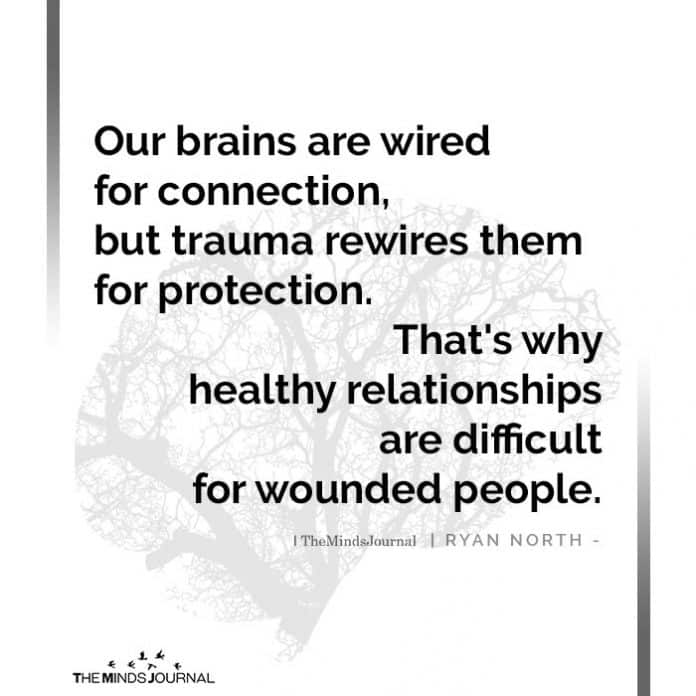
How to Recover Repressed Memories
Here are a few strategies that can help you know how to embark on the journey of recovering these elusive fragments of our personal history.
1. Creating a Safe Environment
Creating a safe and supportive environment is crucial for memory recovery. Ensure you have a trusted and empathetic person to confide in, such as a therapist, close friend, or family member, who can offer emotional support throughout the process.
2. Engaging in Therapy
Therapy, particularly techniques like psychoanalysis and cognitive-behavioral therapy, can provide a structured framework for memory recovery. Skilled therapists help create a safe space where repressed memories can be explored gradually and at a comfortable pace.
Through various therapeutic approaches, such as hypnosis, guided imagery, or dream analysis, memories may gradually resurface.
3. Journaling and Creative Expression
Expressive writing or journaling can be a powerful tool in recovering repressed memories. By allowing thoughts and emotions to flow freely onto paper, you may uncover hidden fragments of memories.
Engaging in creative outlets, such as art, music, or dance, can also tap into the subconscious mind, facilitating memory recovery.
4. Meditation and Mindfulness
Practicing meditation and mindfulness can aid in creating a calm and focused state of mind, which can enhance memory retrieval.
By cultivating present-moment awareness and reducing mental clutter, you may become more attuned to subtle cues and sensations that trigger the surfacing of repressed memories. This is how to recover repressed memories.
Related: Emotional Muscle Memory: How To Release Painful Emotions Trapped In Your Body
5. Guided Imagery and Visualization
Guided imagery and visualization exercises can be employed to explore the recesses of the mind.
Through relaxation techniques and vivid visualization, guided by a therapist or through audio recordings, you can create a mental landscape that encourages the emergence of repressed memories.
6. Regression Therapy
Regression therapy involves revisiting early life experiences through hypnosis or deep relaxation techniques. This approach aims to bypass conscious defenses and access repressed memories directly.
Under the guidance of a trained therapist, regression therapy can facilitate the recovery of forgotten events.
7. Support Groups and Peer Networks
Connecting with others who have experienced similar challenges can provide a sense of validation and support. Joining support groups or online communities can offer a safe space to share experiences, exchange coping strategies, and gain insights into memory recovery.
8. Patience and Self-Compassion
Recovering repressed memories is a delicate and often lengthy process. It is crucial to be patient with yourself and practice self-compassion throughout the journey.
Avoid pressuring or forcing memories to resurface, as this can lead to unnecessary distress. Instead, allow memories to emerge naturally, at their own pace.
Want more tips on how to recover repressed memories? Read on.
9. External Triggers and Symbolism
External triggers, such as specific smells, sounds, or visuals, can serve as powerful catalysts for memory recovery. Pay attention to moments when you experience intense emotional reactions or a strong sense of familiarity in response to certain stimuli.
Additionally, dreams, recurring symbols, or metaphors in your daily life may contain hidden messages that connect to repressed memories. Keeping a dream journal and exploring the symbolism in your waking life can aid in memory retrieval.
10. Body-Oriented Approaches
Our bodies hold valuable clues and sensations linked to repressed memories. Body-oriented therapies, such as somatic experiencing or sensorimotor psychotherapy, focus on bodily sensations and movements to access and process repressed memories.
Through gentle exploration of physical sensations and movements, you can uncover implicit memories stored in your body and integrate them into your conscious awareness.
11. Hypnotherapy
Hypnotherapy is a therapeutic technique that utilizes a state of deep relaxation and heightened suggestibility to access repressed memories. Under the guidance of a trained hypnotherapist, you enter a trance-like state where the subconscious mind becomes more accessible.
Through carefully crafted suggestions and prompts, hypnotherapy can facilitate the retrieval of repressed memories and provide insights for healing.
12. EMDR (Eye Movement Desensitization and Reprocessing)
EMDR is a specialized therapy primarily used to treat post-traumatic stress disorder (PTSD) but can also aid in memory recovery. This technique involves bilateral stimulation, such as eye movements, hand taps, or auditory tones, while focusing on traumatic memories.
EMDR helps process and integrate traumatic experiences, potentially leading to the emergence of repressed memories connected to the trauma. This is how to recover repressed memories.
13. Inner Child Work
Repressed memories often originate from childhood experiences, and inner child work focuses on reconnecting with and healing the wounded inner child.
By engaging in inner child therapy or practices, you can create a nurturing relationship with your inner child, allowing repressed memories to surface in a safe and supported environment. Inner child work often involves visualization, dialogue, and compassionate self-care.
Related: Can Trauma Cause Memory Loss? Understanding The Link Between The Two
14. Regulating Emotional States
Emotional regulation is essential during the process of memory recovery. Repressed memories often carry intense emotions that can be overwhelming when they resurface.
Learning healthy coping mechanisms, such as deep breathing exercises, grounding techniques, or mindfulness practices, can help regulate emotional states. These can provide stability as you navigate the emotions that arise during memory retrieval.
15. Integration and Healing
As repressed memories begin to resurface, the process of integration and healing begins. Working with a therapist, you can explore and make sense of these memories, gradually releasing their emotional charge.
Through this journey, you can develop a deeper understanding of yourself, find closure, and embark on the path of healing and growth.
These are some of the best strategies on how to recover repressed memories. Remember, the journey of recovering repressed memories is unique to each individual. It’s important to approach this process with self-care, patience, and the guidance of trained professionals who can provide support along the way.
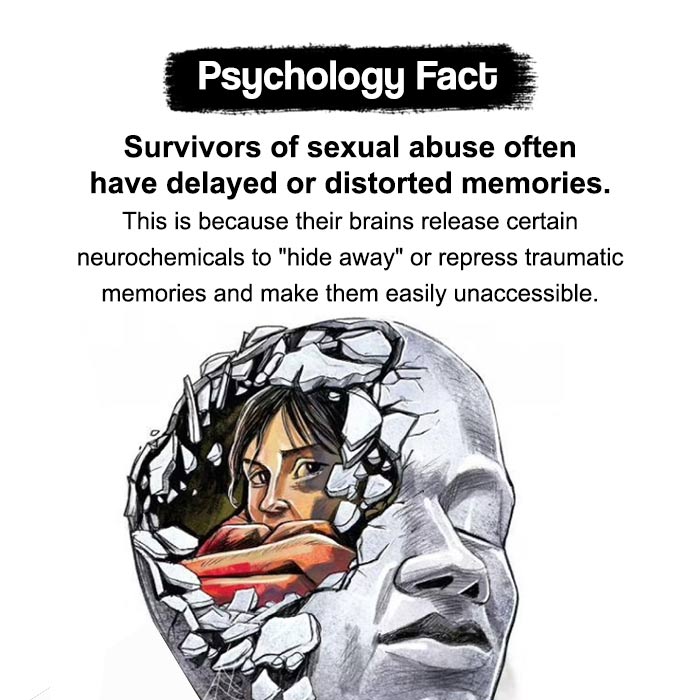
Sarah’s Journey to Recover Repressed Memories
Sarah, a 32-year-old woman, had always felt a sense of unease and fragmented memories from her childhood. She had a loving family, but there were moments when she would experience intense anxiety and unexplained sadness without knowing the cause.
Determined to understand how to recover repressed memories and explore the root of her emotional turmoil, Sarah embarked on a journey to recover her repressed memories.
Sarah began by creating a safe and supportive environment for herself. She confided in her best friend, Lisa, who offered unwavering support and encouraged her to seek professional help. Together, they researched therapists experienced in memory recovery, leading Sarah to find Dr. Thompson, a skilled trauma specialist.
During therapy sessions, Dr. Thompson introduced Sarah to various techniques to unlock her repressed memories. They started with talk therapy, allowing Sarah to explore her emotions and experiences in a comfortable and non-judgmental space.
Through their discussions, Sarah began to notice patterns and triggers that hinted at buried memories. To complement talk therapy, Dr. Thompson suggested journaling as a means of self-expression. Sarah dedicated time each day to write freely, allowing her thoughts and emotions to flow onto paper.
As she delved into her inner world through writing, memories gradually started to resurface. Snippets of images, feelings, and sensations began to piece together, shedding light on her forgotten past.
One day, while engaging in guided imagery and visualization exercises with Dr. Thompson, Sarah had a breakthrough. As she closed her eyes and visualized herself as a child, a vivid memory emerged.
She saw herself playing in her childhood backyard, but the scene quickly shifted to a moment of distress. The memory revealed a previously repressed incident of being bullied at school, a traumatic experience that her mind had shielded her from.
As Sarah continued her therapy, she explored additional techniques. Hypnotherapy sessions helped her access deeper layers of her subconscious mind, leading to the recovery of more repressed memories.
She also participated in group therapy, where she connected with others who had similar experiences. Sharing her journey and hearing their stories provided validation and a sense of belonging.
Related: 5 Signs Your Unconscious Mind Is Trying To Tell You Something
Throughout her recovery process, Sarah learned the importance of self-compassion and patience. She understood that forcing memories to resurface would only cause unnecessary distress. Instead, she allowed the memories to emerge naturally, trusting that her mind would reveal what she was ready to process.
As Sarah integrated her repressed memories, the healing process began. With the guidance of Dr. Thompson, she explored the emotions attached to each memory, gradually releasing their hold on her present-day life. Sarah felt a renewed sense of self and a deep understanding of the roots of her anxiety and sadness.
Sarah’s journey to recover repressed memories was not without challenges, but the transformative power of memory recovery allowed her to reclaim her past and pave the way for a brighter future.
Takeaway
Learning how to recover repressed memories is a deeply personal and profound journey. By understanding the nature of repressed memories and employing various therapeutic techniques, you can embark on the path of self-discovery, healing, and transformation.
Remember, the process requires patience, support, and self-compassion. As you unlock the hidden chambers of your mind, you will find solace, empowerment, and a renewed sense of self.
Frequently Asked Questions (FAQs):
Is it possible to recover repressed memories?
Yes, it is possible to recover repressed memories through therapy, hypnosis, journaling, and self-reflection, but their accuracy can be debated.
What are the signs of repressed memories?
Signs of repressed memories include unexplained anxiety, depression, flashbacks, nightmares, unexplained phobias, and gaps in memory regarding traumatic events.
Why can’t I remember my childhood and teenage years?
Memory gaps during childhood and teenage years can result from various factors like trauma, brain development, or normal memory processes.


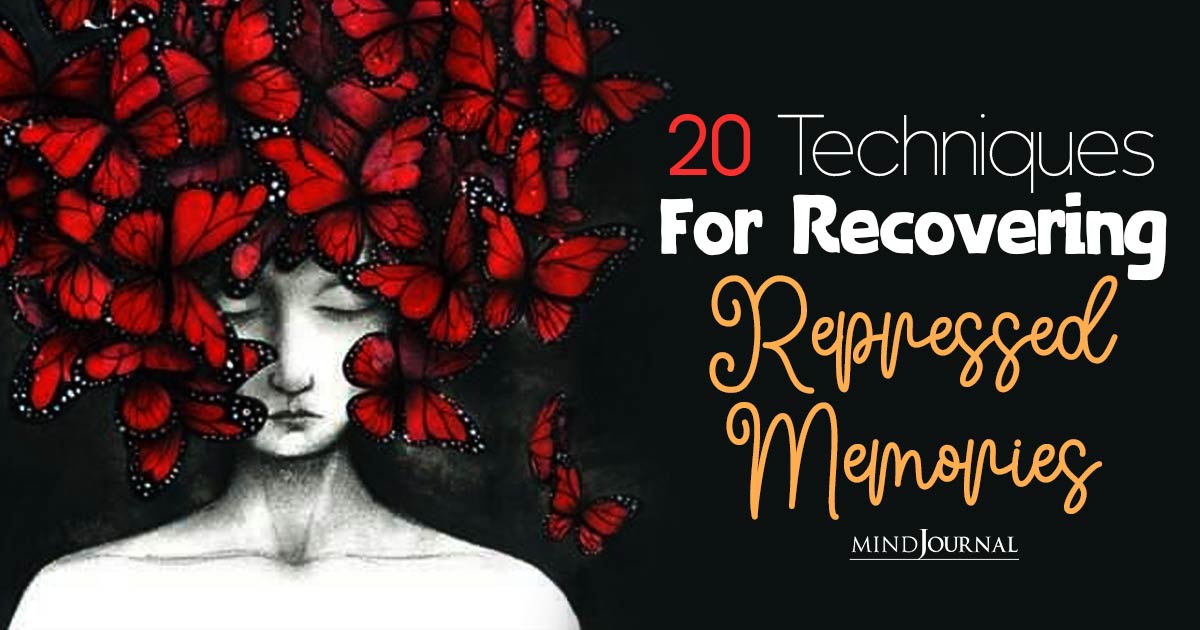
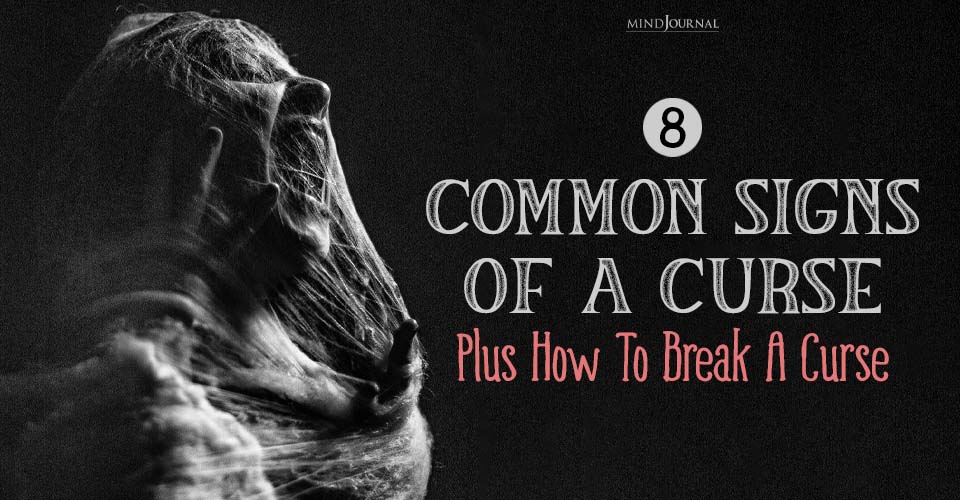
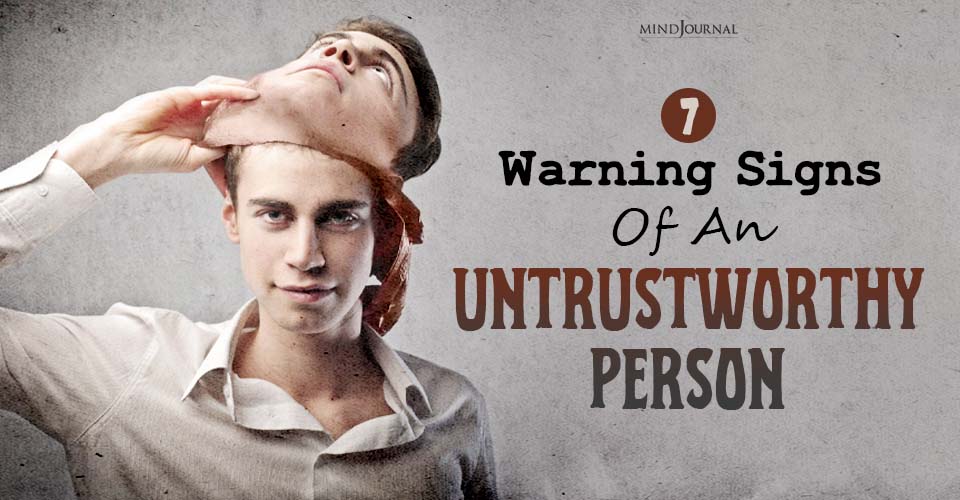





Leave a Reply